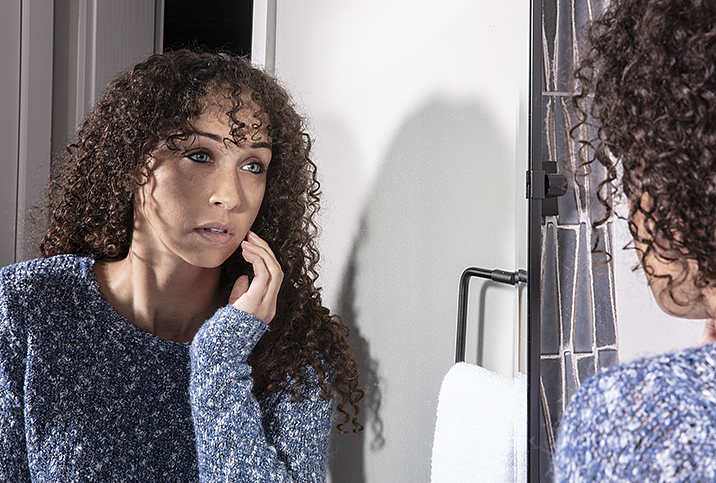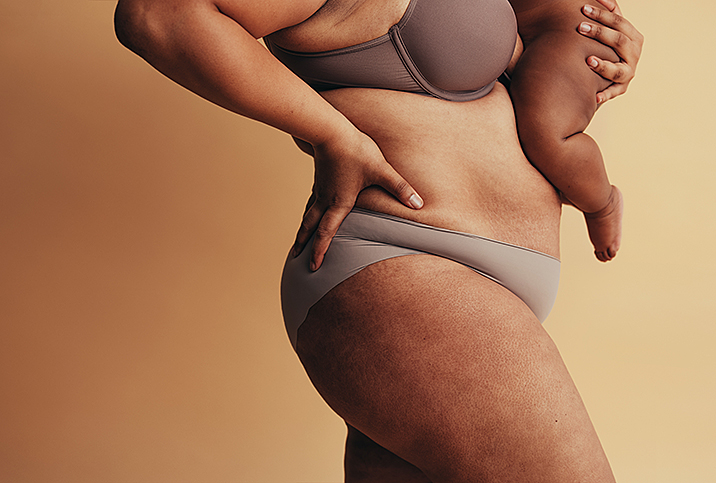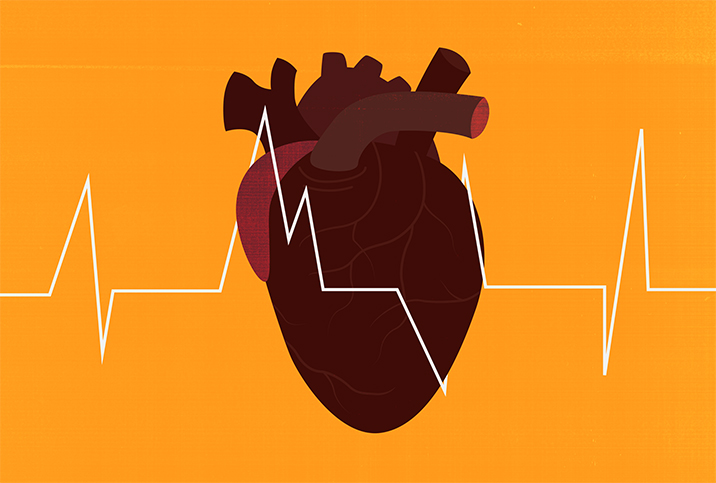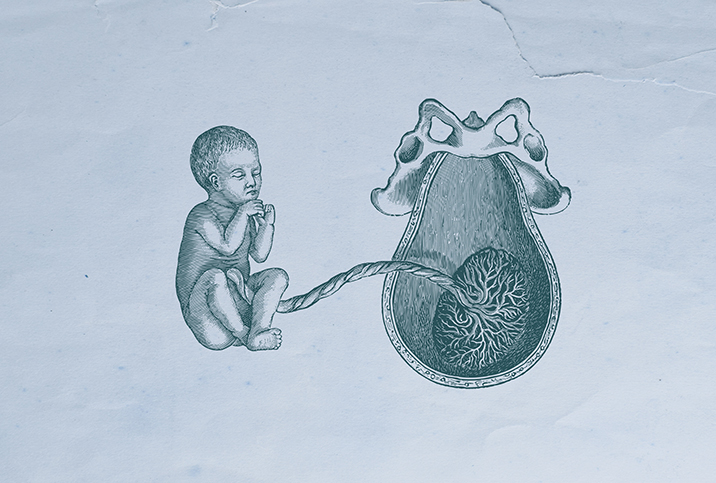Early Treatment of High Blood Pressure Is Beneficial During Pregnancy
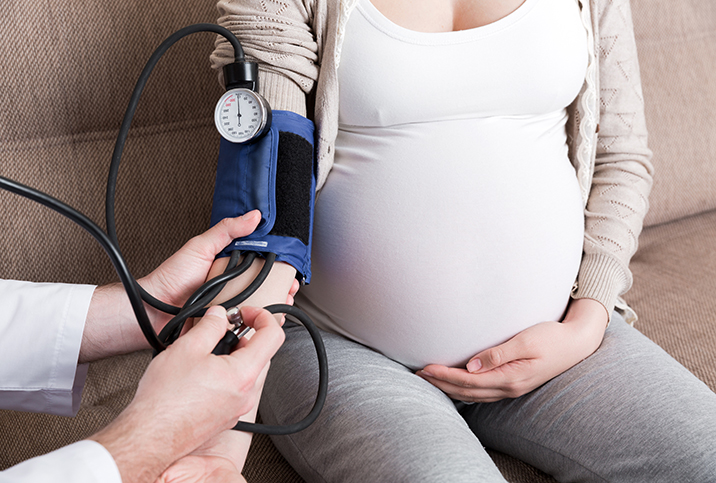
High blood pressure, or hypertension, is fairly common, affecting 1 in every 12 to 17 pregnant people of childbearing age in the United States. Common as it is, hypertension in pregnancy can cause issues for both you and your baby. Now, a new study looks at what can happen when treatment starts before there are severe blood pressure concerns.
According to the study published in April 2022 in the New England Journal of Medicine, researchers followed 2,408 women who were less than 23 weeks pregnant, carrying a single fetus and suffering mild chronic high blood pressure. They found women who received blood pressure medications when their blood pressure was less than 140/90 millimeters of mercury (mm Hg) had better outcomes than those who didn't begin medications until their blood pressure was over 160/105—considered severe hypertension. What's more, the blood pressure medication didn't seem to cause complications in the woman or baby.
Defining high blood pressure in pregnancy
High blood pressure in pregnancy can mean different things depending on when it happens and if there are other factors at play. According to the Centers for Disease Control and Prevention (CDC), there are three types of blood pressure issues:
- Chronic hypertension. High blood pressure exists before pregnancy or develops in the first 20 weeks of pregnancy.
- Gestational hypertension. High blood pressure appears after week 20 or close to delivery. There are no concerns with the heart or kidneys and no protein in the urine.
- Preeclampsia. High blood pressure appears after 20 weeks of pregnancy, along with protein in the urine or other health issues. Untreated, it can develop into eclampsia, which can cause seizures, coma or death. About 1 in 25 pregnant people in the U.S. develop preeclampsia.
The 2022 study focused on managing blood pressure more closely in people who have high blood pressure, or hypertension, prior to being pregnant. Preeclampsia has a different pathophysiology than chronic hypertension, explained Megan Gray, M.D., an OB-GYN at Orlando Health Physician Associates in Florida.
"Treating blood pressures does not treat the underlying cause of preeclampsia," Gray said. "So treating people with pre-pregnancy high blood pressure will not necessarily reduce the incidence of preeclampsia."
Individuals who have gestational hypertension have much higher chances of developing preeclampsia as the pregnancy progresses.
Why elevated blood pressure can be dangerous in pregnancy
During pregnancy, severe or uncontrolled high blood pressure can cause problems—for both you and your baby.
"High blood pressure affects the blood flow to vital organs, such as the brain, heart, liver and kidneys, that can cause permanent damage over time," Gray explained.
Along with causing health issues for yourself, high blood pressure can also affect blood flowing to the placenta, leading to complications such as growth restriction, where the baby doesn't get enough nutrients; placental abruption, where the placenta starts detaching from the uterus; and even fetal death, according to Gray.
Babies have an increased chance of being born premature, and the mother has a higher likelihood of a cesarean section, said Monte Swarup, M.D., a board-certified OB-GYN in Chandler, Arizona, and founder of the information site HPV Hub.
"In the first half of pregnancy, blood pressure normally goes down," Swarup explained. "If your hypertension is mild, blood pressure may stay that way or even return to normal during pregnancy."
However, if blood pressure is 140/90 or higher, you might be recommended to start or continue taking blood pressure medication during your pregnancy.
"Although gestational hypertension usually goes away after childbirth, it may increase the risk of developing high blood pressure in the future. If you had gestational hypertension, keep this risk in mind as you take care of your health," Swarup advised.
Tips for managing blood pressure in pregnancy
"At this time, there are no known true prevention measures for gestational hypertension. It is ideal for any person considering pregnancy to optimize their health prior to becoming pregnant," Gray said.
But maintaining a healthy lifestyle during your pregnancy can't prevent gestational hypertension or preeclampsia.
It may sound as if there is nothing you can do to prevent high blood pressure in pregnancy. But while you can't directly impact your blood pressure with lifestyle changes, you can hopefully prevent complications by:
- Attending all your prenatal visits
- Avoiding smoking and alcohol use
- Taking folic acid
- Getting regular exercise
- Eating a healthy diet
- Bringing up any concerns to your provider right away
If you do start seeing your blood pressure creep up at your appointment, you may be advised to do more frequent monitoring, either at home with a blood pressure monitor or by coming in for blood pressure checks. Gray warned that elevated blood pressure doesn't always have symptoms, so it's easy to dismiss how important it is to be closely monitored by your provider and take any prescription for blood pressure medications as directed.
"You and your OB-GYN should talk about how your condition will be managed," Swarup advised. "The goal is to limit complications for you and to deliver the healthiest baby possible."












